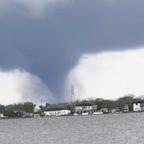Cheney's Obsession?
Feb. 22, 2007— -- As a jury considers the fate of I. Lewis "Scooter" Libby on charges of perjury and obstruction of justice, questions remain concerning the depth and breadth of Vice President Dick Cheney's role in a White House-led effort that exposed the identity of a covert CIA agent.
Libby's trial revealed a Vice President fixated on knocking down allegations the Bush administration manipulated intelligence leading to the Iraq War.
"This trial is a fascinating exploration of both the political and the legal dimensions of what happened," says former federal prosecutor Michael Levy. "It's impossible to watch this trial and not feel the intense high level politics involved."
Cheney Angry, Pushed Back Against War Doubters
Libby acknowledged under oath that Cheney was angry about a July 2003 opinion article that challenged evidence used to build the case for war. The article was written by then-Ambassador Joe Wilson and published in the New York Times.
In testimony Libby gave to a grand jury in March 2004, he affirmed the seriousness of the accusation.
Prosecutor Patrick Fitzgerald described Libby's accusation against the Cheney as "direct", saying it implied the Vice President was "dishonest".
"If you followed the inferences that Mr. Wilson made," Fitzgerald asked Libby, "that the President was dishonest and that the country was misled into war. Is it fair to say that that was the -- perhaps the most serious attack on the administration's credibility thus far in the Presidential term?"
Libby replied, "It was a serious accusation. I'd, I'd have to go back, back over the administration to evaluate it compared to other attacks, but it was, it was a very serious attack."
Wilson's article came at a sensitive time for the White House. The United States was already several months into the war in Iraq, but United Nations inspectors had failed to find any weapons of mass destruction.




